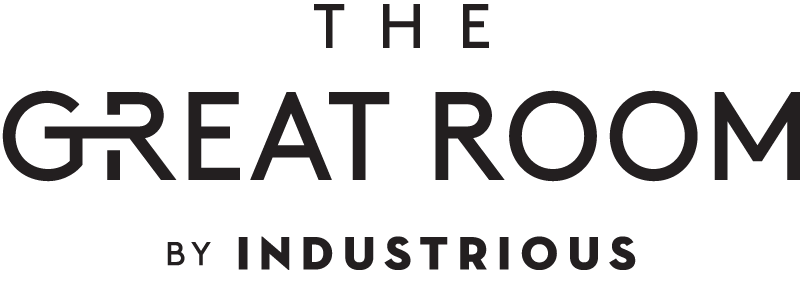Workplace goals are useful, but they’re just part of the process. Here’s why storytelling matters.
Who doesn’t love a great story? Whether you’re reading it, watching it, or listening to it, a compelling story will have you captivated; for minutes if not hours. Stories are something we hear and tell every day; to ourselves, to our friends, to our colleagues. Here’s how to wield the skill of storytelling for your own success, and for the success of your team and your organisation.
Telling your own story
Goals are a useful tool, but they’re not the end game.
“A goal has a timeline, there is a strategy put in place with an end date and a determined outcome, either yes, it has been achieved, or no. If not, then you adapt the goal yet again for another end date,” says Selin Demir, General Manager of The Great Room in Bangkok, a hospitality-led premium co-working space conveniently located in Gaysorn Tower, at the heart of Central Bangkok, with additional locations in Singapore and Hong Kong.

Bigger than goals are stories. American author, blogger and speaker Jeff Goins has plenty to say on the subject of goals versus storytelling. “All a goal can do is help you achieve something. The real trick is to get clear on the something,” says Goins, who wrote The Art of Work and Real Artists Don’t Starve, among other books, after he left his role as a marketing director to pursue a full-time career as a writer.
What, then, is that something for you? Goins puts forward five questions that may help you determine what that something is – and figure out how to pursue it.
- What do you want?
- What will stop you from getting what you want?
- Who must you become on this journey? (“The game is always about wanting, growing and learning,” says Goins, who points out that you may learn more from not getting what you want than from getting what you want.)
- Who will help you on your quest?
- What will you learn?
As you can see, these questions are much like the questions you would ask if you had a story you wanted to tell, or an idea you wanted to turn into a story.
To begin with, you, as the writer of your own career/life story, may not know the answer to all five questions, and that’s okay, in fact it’s part of the fun. But it will be extremely helpful if you can figure out the answers to questions 1 and 2 when you’re first kicking things off.
Knowing these two answers will help you set relevant goals that will help you achieve what you want.
Create collaborative stories
Whether or not you realise it, you’re constantly using stories in your interactions with others. In the workplace, you might use them to convince colleagues, clients or potential investors to support whatever you’re working on; you might use them to galvanise teams in challenging situations; and you might use them to help those you manage understand where there’s room for growth.
Stories also come in handy in presentations, or when you’re speaking to a crowd of people. An audience is, after all, more likely to remember you if you’ve told a story – your ideas are more likely to stick. “Stories add a human touch,” says Demir.

“I’m a fan of anything that brings people together and storytelling is one aspect of this,” adds Demir. “It’s unique to everyone, specific to one person yet widens all our perspective. It can help build trust and a long term partnership too. Good storytelling allows you to bond with people beyond working relationship or even friendship. It taps into your emotions, motivations and creativity, even if you don’t think you’re creative (like me)!”
The challenge, of course, lies in communicating these stories, especially when, as Demir says, people’s backgrounds are so diverse that stories can get lost in translation – and then there’s no buy-in.
The key, says journalist Carolyn O’Hara, lies in getting clear on the message you want to convey, and tailoring it to fit your audience. This is the baseline of any story: know your message and your audience from the get-go, and always weave your story/stories around them.
And, says O’Hara, don’t make yourself the hero of your story. Sure, use your own life experience as the starting point, but avoid turning your story into an opportunity to celebrate your own achievements: do that, and you’ll instantly lose your audience’s attention. Instead, focus on a struggle and the lessons learned or experiences had – whether yours or someone else’s.
Back to goals
While Goins is in favour of stories instead of goals, we’d argue that goals can be a valuable part of the storytelling process. With your own stories, goals can help you achieve your answer to question 1 (what you want).
Goals can also be useful milestones when you’re working with others, too. Treat them as the anchor points in the bigger picture, which can sometimes be hard to see.

“Goals clear your mind, helping you and your team focus,” says Eva Zhang, General Manager of The Great Room Hong Kong, a premium co-working space at One Taikoo Place in Quarry Bay.
Zhang’s tips for achieving workplace goals? “It’s all about setting the strategy and action plan to accomplish the goal,” she says. “Setting up SMART (Specific, Measurable, Achievable, Realistic, Timely) goals is key. We do this quarterly with OKRs/KPI, and adjust when the situation changes. Hong Kong’s current situation is a good example.”
Once the SMART goals are set, Demir says she then asks herself, “Are we all aligned? This part is about making sure each team member’s understanding and contribution to the goal is relevant to them – like making sure the parts are assembled properly.
“Checking in with the team and reviewing the performance is crucial, as it’s like oiling the machine as it operates. It’s done in a timely matter that’s relevant to the goal. This allows us to adjust as we go along. If it doesn’t work out, we realign ourselves accordingly. Of course if it does and is achieved, we celebrate. We never forget to celebrate.”
